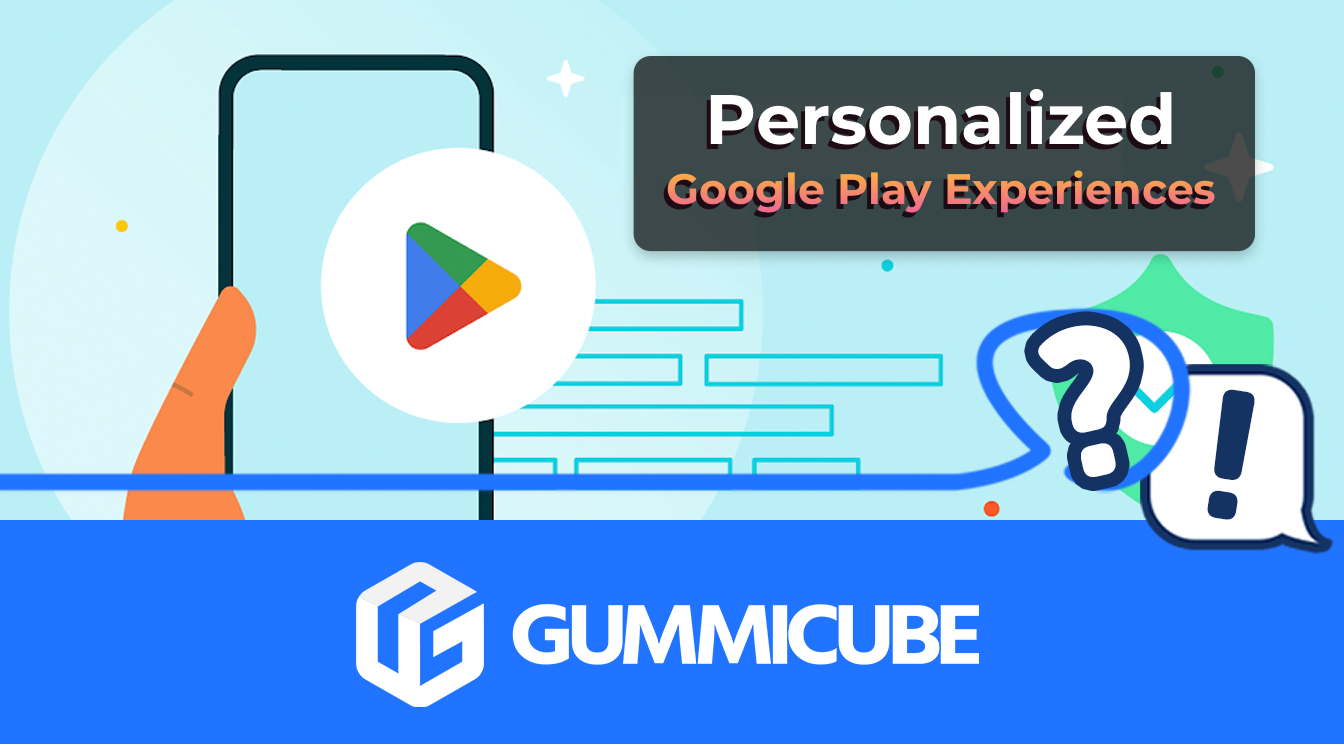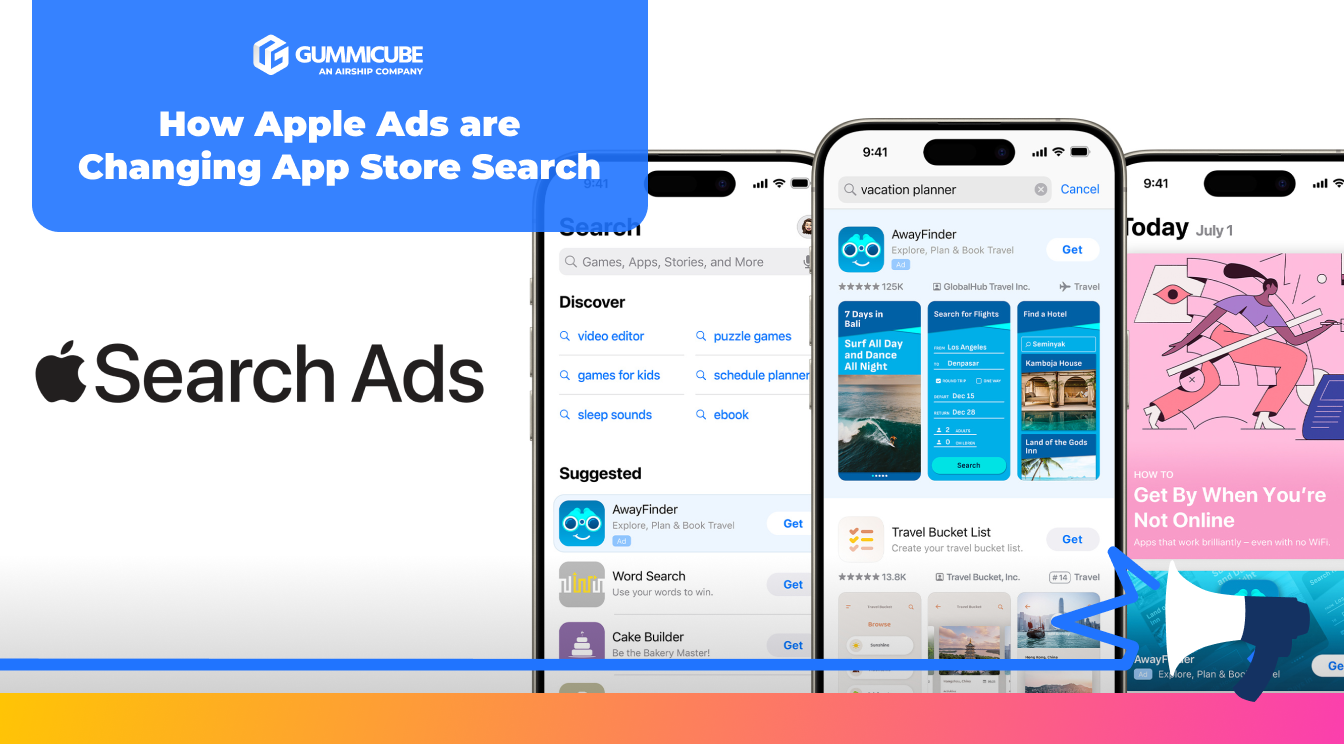
Netflix is Changing Strategies to Elevate User Engagement
Posted on February 5th, 2026
Netflix’s mobile revamp is a strategic acknowledgment that user behavior has shifted toward social-first, vertically consumed, algorithmically surfaced content.

Google Play will be updating and improving users’ browsing experiences in the Google Play Store, as of recent reports at the end of July.
There have been multiple reports of Android users being asked by Google if it will allow the platform to suggest localized apps, content, and offers(¹, ²).
Google even emailed registered Google Play Store users updated help guidelines that could help improve and personalize your experiences.
Google's recent developments could potentially change the landscape of app promotion on the Google Play store may be shifting significantly, but it’s unknown when this would happen
Within the new Help Center page, Google Play notes “To help improve your experience, Google Play can provide you with relevant content tailored for you, which can include app and book recommendations, offers, and search results. These recommendations and offers can be presented in Google Play, as well as in apps and games managed by Google Play…”
This takes from digital marketing concepts as a whole, using available information to serve users ads and products that align with their browsing histories.
To create these personalized recommendations, Google Play will use your “searches, impressions, activity related to Google Play Games and your Google Play Games Profile, and your app activity”.
From a user perspective, personalization means less time searching for things that a user may like or need in the Google Play Store. They won’t need to parse through thousands of different apps that have roughly similar approaches to the exact same thing. These users would be served exactly what aligns with their searches and browsing behaviors.
What does this mean for developers and marketers? Google Play is clearly pushing the customization and personalization aspects of app discovery. Alongside the recent Custom Store Listing improvements, Google is now placing heavier emphasis on its usage, which could ultimately mean that by utilizing these features, you may get more chances of being discovered within the personalized recommendations.
The Custom Store Listings help to establish relevance,one of the main factors in conversion rate, cost per acquisition, and a positive user experience.
On top of making sure your Google Play App Store Optimization strategy is sound, looking into Custom Store Listings can give Google Play additional material to serve.
Location-Specific Pages & Campaigns. Businesses with apps that rely on localized marketing campaigns can now be featured to a hyper-focused demographic, enhancing the relevancy of Google Play recommendations.
Restaurants, theaters, fitness centers, and grocery stores are just some of the industries that will be positively impacted by location-specific updates, specifically tied to offers.
In theory, if this update is in line with the current iOS store, then let’s say a Domino’s restaurant in a suburb is struggling to hit their numbers for a particular month. The company can launch a geo-targeted, time-sensitive offer within a Custom Store Listing for that county, potentially drawing an increase in customers for what might have otherwise been a slower business day. Note that within Custom Store Listings themselves, you can’t go further than the country level, but you can connect these pages and restrict traffic to location-specific funnels such as websites, email blasts or marketing campaigns.
As Gummicube VP of Strategy, David Quinn, noted in an article about screenshot localization, “when localizing your app, your first two screenshots can make all the difference for conversion.”
While screenshot localization applies mostly to global localization (i.e. app promotion in India vs. USA) we can apply similar tactics to micro-localized regions within a country. For example, there may be a big difference in how we market clothing in the East Coast versus the Midwest.
As we see from Google’s recent statement, the company offers its personalization option in Google Play to the user in a rather tempting way. By turning on the personalization option “you may get faster and improved search results, app and content recommendations and offers based on your activity, and faster app updates for the apps you use most often.”
Personalization can be exemplified by the following use case: A resident of Miami, Florida that has a history of browsing theater shows heads off to Chicago, where the theater options are more abundant. A ticket app launches a geo-targeted discount offer for a show in Chicago that week. The Miami native, although not from Chicago, is within the geo-targeted zone and receives the offer while in their hotel room.
On a macro level, the basics of app store optimization must be applied, and this would likely have the most impact on what Google learns about your app. Succinct messaging, relevant images to the experience you offer or the lifestyle implied by your app, and relevant keywords will all have an impact on how your app is perceived
While it will be up to Google Play’s algorithm to connect the dots between your app and the relevancy it has to a specific user, it is you–the app owner or promoter–that has control of your app’s performance. Your conversion rates and ranking are very likely to also have an effect on the traffic you gain from personalization.
On a micro level, creating a geo-targeted campaigns and Custom Store Listings require meticulous detail, including regional/cultural differences, potential variance in use of language, knowledge, and local imagery that a native of the area may connect with. A proficient level of understanding of an area is required for a promotion to be successful, and templates of a campaign can’t always be applied from one region to another.
For instance, a geo-targeted campaign with a 5-mile radius in a Virginia suburb will be vastly different from the same 5-mile radius in New York City. It may be easy for someone in a Virginia suburb to travel 5 miles for $10 off on two large pizzas. But it may be ridiculous to expect a New York City resident to travel that same distance in their area, as it could take 1 to 2 hours.
The Google Play update has not fully permeated, and we’re not sure when this will happen. We’re hoping to accumulate more data to analyze the impact of increased location-based campaigns and personalization, and whether or not users respond well to it
Given the positive impact similar principles have had on iOS store traffic through Custom Product Pages and Apple Search Ads, we can only assume that the results should be the same on Google Play.

Netflix’s mobile revamp is a strategic acknowledgment that user behavior has shifted toward social-first, vertically consumed, algorithmically surfaced content.

Apple’s upcoming Siri update, powered by Google’s Gemini AI model, represents a meaningful inflection point for the App Store ecosystem and ASO strategies.

Apple Ads are changing App Store search by expanding ad placements while simultaneously reinforcing relevance as the core driver of visibility. Read more!